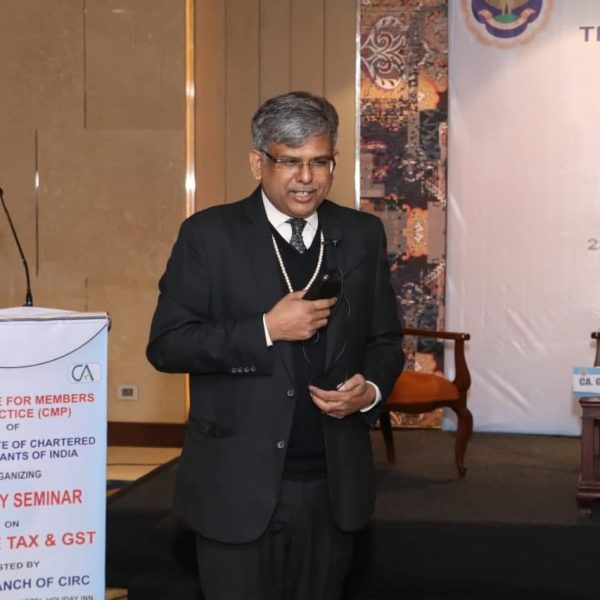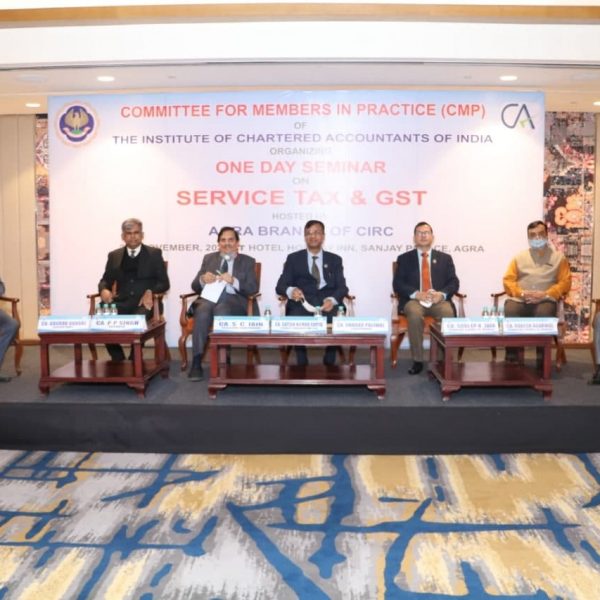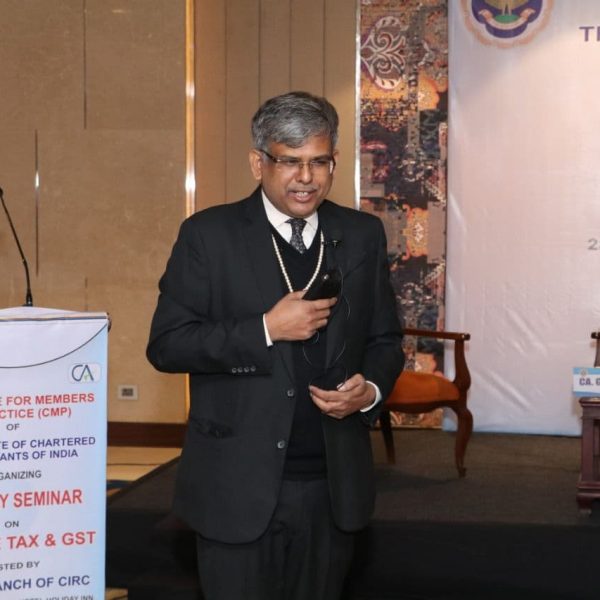Important Points while Drafting a contract
- Cover page: including the title of the agreement, date of the agreement, date of enforceability, and detail of parties to the agreement.
- preamble: title of agreement such as joint venture, sale deed, rent agreement, date of execution, place of execution, place of signing, and abbreviation used for the title of agreement.
- Details of parties entering into a contract: details of parties such as PAN, CIN, GST registration No. etc. besides the name and registered office with contact details such as Email ID. in the case of the individual party must include the legal heir of the individual so that the unperformed portion of the contract must be completed. In the case of a company, there must be provisions of responsibility of the newly amalgamating company to perform an unexecuted portion of the contract. the party must be competent to enter into a contract.
- description and authorization of persons entering into a contract on behalf of parties such as guardian on behalf of a minor, partner on behalf of partnership / LLP, and director on behalf of the company.
- Recitals / whereas clause – how parties approached one another and agreed to do so for others. narrative recitals such as the previous history of the parties and introductory recitals such as the reason for the agreement.
- Operative clauses such as transactions, covenants, a condition precedent, closing deliverables, specific performances, territorial applicability of the agreement such as whether the agreement is applicable globally or a specific territory, etc.
- MSME party: Whether the parties/party are/is MSME if yes the MSME details must be there and the other parties have to ensure payment within the specified period of 45 days and privileges available to MSME must be taken care of.
- The subject matter of the contract: the contract must specifically mention the true nature of the contract between the parties for any work/ supply to be executed
- Offer and acceptance: who has made an offer and who has accepted the same on certain terms and conditions.
- consideration: lawful consideration and clear payment terms with specific due dates and credit periods along with modes of payments. the person liable to pay consideration including any reimbursement and the methodology for claim or reimbursement amount.
- Payment of expenses/ materials or machinery provided to the contractor by the contractee.
- joint cost allocation and payment thereof by the parties.
- supply of goods and transportation: responsibility for transportation of goods to be supplied, freight payment liability, insurance claim in the case of damage or loss during transportation.
- the time period for any issue in invoice or reporting of discrepancies by the other party, similarly provision related to the issuance of credit notes for the reduction in consideration and debit notes for any enhancement of consideration.
- credit period and due date of payments
- Payment terms: clear specific payment terms and modes of payment.
- Deduction at the time of payments: the deduction to be made for TDS under income tax, GST TDS or labour cess or other statuary deductions as well as non-statuary deductions like- deduction for security deposit etc. must be specifically mentioned in the contract.
- Security deposit: provision pertaining to refund of the security deposit, it is a non-interest bearing deposit, forfeiture of EMD
- Adjustment of EMD(earnest money deposit) against the security deposit
- In the case of a supply of goods: provisions of the sale of goods act must be taken into account, including specification of goods to be supplied, HSN of goods, delivery terms, place of delivery, the bill to ship to details, etc.
- supply of service: whereas in the case of a supply of service including works contract the specific work to be executed, a timeline of performance, an inspection of work done and the timeline for reporting discrepancies/shortcomings/deficiencies, and the timeline for corrective measures must be in the contract.
- Provisions pertaining to taxes: there must be specific provisions regarding who will bear the taxes like- GST etc. and how such taxes shall be reimbursed/ paid to the contractor. If the consideration amount of the contract is all-inclusive these points must be specifically mentioned in the contract.
- GST Supply: To ensure availing ITC under GST a clause to ensure reporting of GST compliance and withholding of payments to compel deposit of GST and reporting in GSTR-3B /GSTR-2A/GSTR-2B/GSTR-1 etc by the supplier of goods or service provider.
- invoice issue: periodic or specific milestone mentioned in the contract, delivery of material, the person responsible for issuance of e-way bill/road permit, point of time for transfer of risk and reward.
- Rights and duties of parties in respect of one another: all important rights and duties of the parties must be specifically mentioned
- Force majeure clause: this must be specially mentioned to handle situations where situations are beyond the control of a party or both parties. Also mention cases of force majeure such as acts of god, civil disturbance, natural calamity, the spread of war, flood, pandemic, government restriction, or any other causes beyond the control of the party. notice by the affected party to another party and a specific notice period with all available modes of notice as per circumstances. continued disruption beyond a specific period may lead to the termination of the contract.
- Assistance in tax/other legal proceedings: the assistance of one party to another by way of confirmation etc in tax proceedings/ other proceedings even after termination of the contract.
- Applicable laws: the applicable laws of the land must be mentioned in the contract including laws of the land and applicable international laws.
- Jurisdiction of court in the case of dispute: there are so many types of jurisdiction like- pecuniary jurisdiction, subject matter jurisdiction etc.
- Choice of law and provisions of private international law including the doctrine of renvoi/double renvoi
- Choice of court: if more than one court may have concurrent jurisdiction to resolve the dispute or as agreed by parties in the future.
- dispute resolution: how to resolve the dispute including negotiation, mediation, conciliation, arbitration, court intervention etc
- Arbitration clause: Specific arbitration clause in the agreement/separate arbitration agreement in writing including provisions pertaining to the appointment arbitrator sole or odd number, qualification of an arbitrator, liability to pay the fee of the arbitrator, seat of the arbitrator, language in the arbitration proceeding, and other incidental matters.
- The validity period of the contract: The time period for which the contract shall be valid and also remains valid during the extended period
- Renewal/ extension of a contract: specific terms pertaining to the extension/ renewal of the contract. conditions of automatic extension.
- Defects liability periods: the period during which the contractor has the obligation to remove the This must be specifically mentioned in the contract.
- Cancellation of contract: notice before cancellation of the contract by one party to another and notice period. the situations leading to cancellation, the right and lability of parties must be specifically mentioned for the situation of cancellation of the contract by either party.
- Compensation to the other parties for in action/omission/ default by the first party
- Liquidated damage/adjustment of security deposit: specific provisions must be there for liquidated damage in the case of non-performance/under-performance
- Delegation of work to others/sub-contactor and the lability of the principal contractor
- Confidentiality clause/non-disclosure (NDA clause): make sure sensitive information should not be passed to any third party without written permission of other party or where under the law of land specifically required to disclose. in case of violation of the above clause, other parties may ask for damage and quantification of the damage amount.
- Notice period: for termination/ modification in the terms of the contract. different parties may have different notice periods.
- Representation and warranty covenants/ undertaking: each party is duly authorized to act on behalf of the parties they are representing. one party warrants the other for any loss, damage, or injury due to the act of the other parties. one party undertakes the others about quality, standards of supply, and obligations.
- indemnity and liabilities of each party: one party indemnifies the others for loss, damage, injury, and to what extent such party will compensate.
- IPR and data protection: each party shall make effort to abide by IPR and data protection to avoid a loss to another party.
- Damages: in case of any breach of the terms of the contract causing loss to another party the defaulting party shall be liable for compensatory damage, restitution for unjust enrichment, liquidated damage, nominal damage, quantum meruit (legal action to receiving the compensation for work done by other based on equitable principle), remedies in equity, punitive damage.
- service notices address, email id to send notices by one party to another, and also a mode of serving notices.
- anticorruption and anti-bribery clause: parties shall comply with all anti-corruption laws including IPC, prevention of corruption act 1988 etc. Neither Party will, directly or indirectly, offer or pay anything of value (including gifts, travel, entertainment expenses, and charitable donations) to any official or employee of any government, government agency, political party, or public international organization, or any candidate for political office, to (a) improperly influence any act or decision of the such official, employee, or candidate for the purpose of promoting the business interests of the other Party in any respect, or (b) otherwise improperly promote the business interests of the other Party in any respect, in each case in violation of applicable law. Neither Party will retaliate against anyone who has, in good faith, reported a possible violation of this Section or refused to participate in activities that violate this Section to the extent prohibited by applicable law.
- Right to examine records of one party by another related to the transaction agreed for particularly where voluminous records.
- Non-compete: specific clause where a party agreed not to compete with other parties in the same line of business. while drafting the provisions of competition of law must be taken into the account.
- Non-solicitation clause: this clause binds the party not to solicit business from the client or customers/employees of other parties.
- Change of Law. how to deal with the changes in laws in the future.
- Drafting of contract: The drafting of the contract must ensure simplicity, clarity, futuristic, options definition/ interpretation, and direct/straight sentence.
- interpretation of terms used: meaning of various terms used their definition and how to interpret and rules of interpretation applicable if more than one meaning of a word/ clause.
- Effective date, time of completion, and validity of the contract.
- signature of parties including an electronic signature with full details along with name and designation address
- Signing the contract: in the case of signing the contract for the company or partnership firm the parties must be authorized by the company to do so. Here it is important to note the doctrine of ultra-virus and the doctrine of indoor management but it is always advisable to specifically mention everything in black and white.
- Witness: At least two independent witnesses, at least one from each side can be produced and have the willingness to be present before the court if dispute between the parties. complete details of witness name address, and identity details such as pan aadahar, voter id card no, DL no etc.
- waiver: cases of delay or omission to exercise any right, power, or remedy accruing to any Party upon any breach or default under this Agreement, leading to a waiver of any breach or default occurring thereafter. when waivers granted hereunder are effective such as recorded in a writing and signed by the Party granting such waiver. All remedies, either under this Agreement or by law or otherwise afforded to any of the Parties, shall be cumulative and not alternative.
- Severability: Any provision of the Agreement which is prohibited or held to be unenforceable in any jurisdiction by a court or tribunal of competent jurisdiction, shall be ineffective to the extent of such prohibition or unenforceability without invalidating the remaining provisions of this Agreement. The prohibited or unenforceable provision may be substituted, by mutual consultation and agreement of the Parties, with a provision of similar import reflecting the original intent of the Parties, to the extent permissible under applicable law.
- Lock-in period: the period during which terms and conditions of the agreement could not be verified
- Amendment. No modification, alteration, or amendment of this Agreement or any of its terms or provisions shall be valid or legally binding on the Parties unless made in writing and signed by or on behalf of both Parties hereto.
- Survival: survival of certain clauses of the contract even on termination of the contract such as indemnity, arbitration and dispute resolution, confidentiality, notices, jurisdiction, etc.
- entire agreement: entire agreement to be read together to minimize misunderstanding.
- counterparts: The Agreement may be executed in any number of counterparts, each of which shall be deemed an original and enforceable against the Parties actually executing such counterpart, and all of which together shall constitute one and the same instrument.
Post Views:
1,220










